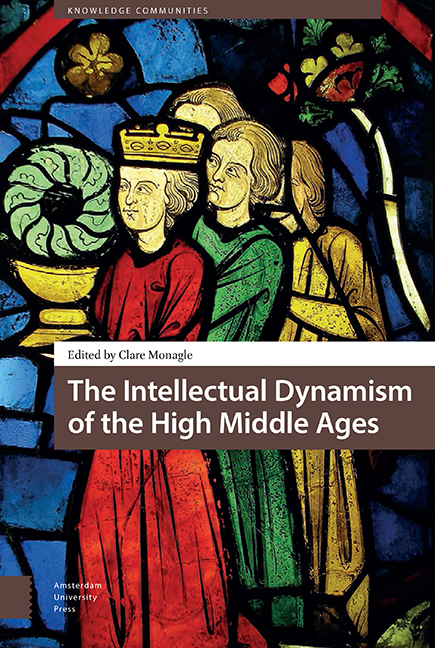Book contents
10 - A Sense of Proportion: Jacobus Extending Boethius around 1300
Published online by Cambridge University Press: 16 July 2022
Summary
Abstract
Boethian arithmetic formed the basis of music theory for the medieval encyclopedist, Jacobus. His monumental Speculum musicae shows us how people around 1300, and particularly in the University of Paris, were slowly accommodating themselves to the newly rediscovered works of Aristotle, while the long-known works of Euclid and Boethius still gave a definitive theoretical basis to music. Not without effort Jacobus reworked Boethius and went further, though still using Boethian techniques. One difficulty he encountered was the problem of dividing the tone into two equal parts.
Keywords: Jacobus de Ispania, Jacques de Liège, Speculum musicae, Medieval Music Theory, Semitone
Music theory in the thirteenth century was very different from today. While it was acknowledged that music provided sensory pleasure, it was believed that the senses were inadequate to provide a theoretical foundation for music. For this only the Platonic heaven of numbers was appropriate. This meant that music theory was part of mathematics. Jacobus, who wrote a massive encyclopedia of music theory, held this view and not only revisited but also dramatically extended the earlier work of Nicomachus (living c 100 CE; from Jerash, in modern Jordan) and Boethius (c 480-524). In this chapter I concentrate on two of his concerns: the problem of dividing a tone into two equal parts and his enormous extension of the Boethian characterization of musical intervals by numerical ratios.
In the fledgling thirteenth-century University of Paris, music theory was taught as one of the seven liberal arts in a framework that owes its origins to Boethius. Boethius had transferred the legendary Pythagorean theory of music, which had been put on a rigorous footing by Nicomachus of Gerasa, expanding, and clarifying it. Jacobus de Ispania (c 1260-c 1330), otherwise known as Jacques de Liège, worked in Paris in the 1290s, and he undertook to revise Boethian music theory, adding explanations where he felt them necessary. His time in Paris seems to have been crucial to the development of his version of music theory. In discussing Jacobus it is vital to consider his context – in many senses of the word – if we are to understand his motivations and limitations when he wrote his great work, the Speculum musicae. The only complete copy of this huge work is a fifteenth-century manuscript of 293 folios (Paris, Bibliothèque nationale de France, latin 7207).
- Type
- Chapter
- Information
- The Intellectual Dynamism of the High Middle Ages , pp. 213 - 226Publisher: Amsterdam University PressPrint publication year: 2021

